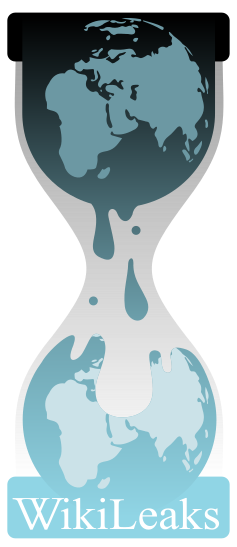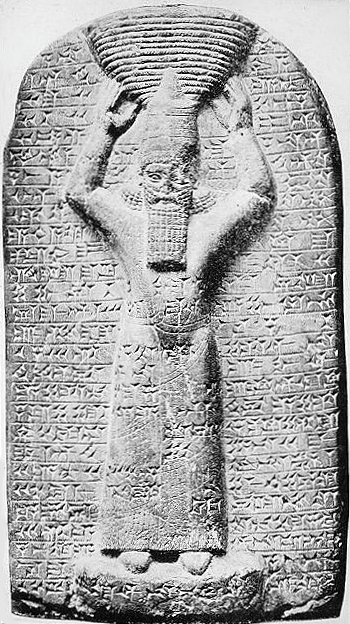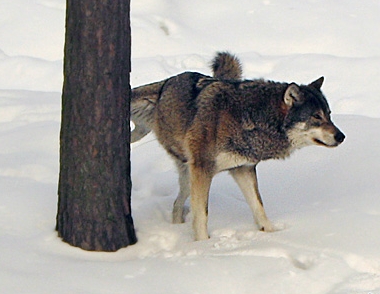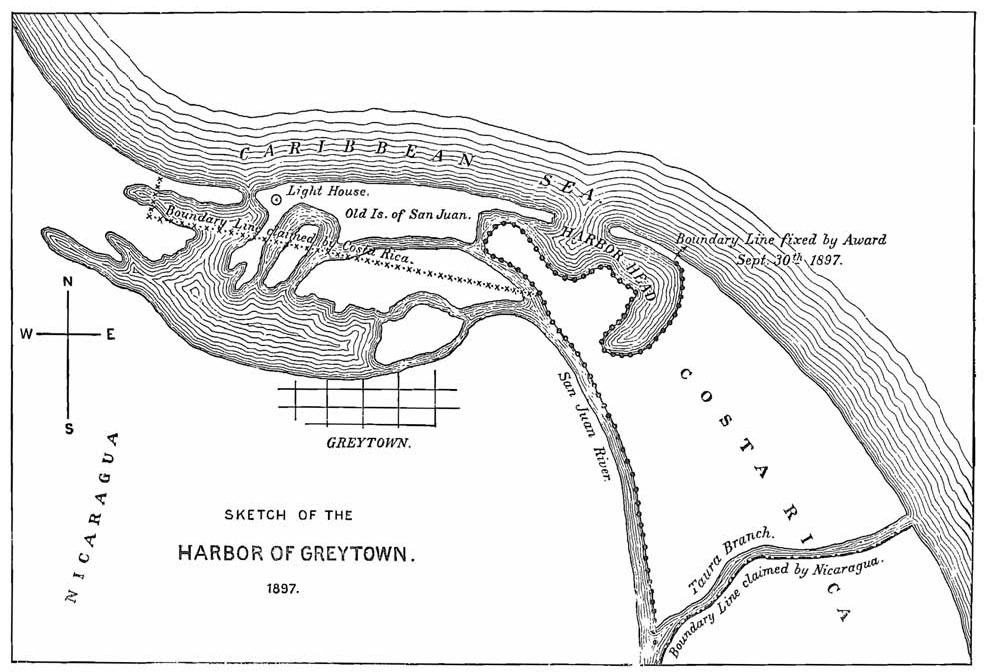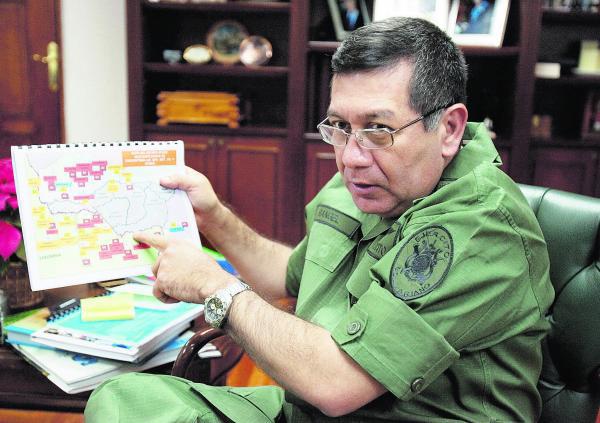
Ich frage mich, ob Hugo sich ein
Embargo wie gegen Kuba erhofft. Nur er könnte davon profitieren. Der Castro-Klan weiss, wie es geht.
Aus
El Carabobeño kann man einen Überblick über Enteignungen während der Militarregierung haben. Ich kommentiere.
2007
Mai: symbolische Übernahme der Erdölfelder des Orinokobeckens (sehr symbolisch).
Mai: die venezolanische Telekomfirma CANTV wird verstaatlicht. Der Staat erhöht seinen Anteil von Electricidad Caracas auf 92.98%. Die Qualität der Dienste geht in die Hose. Die Regierung behält die Kontrolle fast aller Kommunikationsmittel im Lande. Sie kann nun Internet und Telefonanrufe besser kontrollieren für den Fall aller Fälle oder sonst für einige Fälle.
Juni: ExxonMobil und ConocoPhilips lehnen ein Unternehmen mit der Regierung als Hauptaktionär ab. Ein Gerichtsverfahren wird gestartet. Er läuft
immer noch.
2008
Januar: 32 Erdölfelder im Orinokobecken werden offiziell verstaatlicht.
März: Lácteos Los Andes, ein Unternehmen für Milchproduktion und Milchprodukte, wird für die Ernährungssouveranität verstaatlicht.
April: Chávez sagt, er wird "die ganze Zementindustrie im Lande verstaatlichen".
April: Chávez befiehlt die Verstaatlichung des Stahlunternehmens Sidor und der italienisch-argentinischen Firma Ternium Techint.
Juli: Chávez erklärt, der Banco de Venezuela, Teil der Santander-Gruppe, wird verstaatlicht. Man tut es aber noch nicht. 2009 wird die Regierung dafür $1.050 Milliarden an die Spanier zahlen.
August: die Regierung kauft die Zementbetriebe der französischen Firma Lafarge und der schweizerischen Firma Holcim (für $552 und $267 Millionen je). Die Regierung verstaatlicht auch die Anlagen der mexikanischen Firma Cemex. Es gibt noch keine Vereinbarung.
August: die interne Förderung von Treibstoff, die bis dahin zu 49% vom Staat betrieben wird, wird völlig verstaatlicht.
November: die Goldmine Las Cristinas, die die Chávez-Regierung an eine kanadische Firma gemietet hatte, wird verstaatlicht. Die Regierung gibt die Kontrolle an die Russen.
¿Veis el patrón? Seht Ihr, wohin es hinläuft? Es handelt sich vorwiegend um US und venezolanische Firmen. Die Regierung versuchte auf jeden Fall den Spaniern gut zu zahlen, sie will Probleme mit der EU auf jeden Fall vermeiden.
2009
Februar: die Regierung ordnet die Militärkontrolle der Betriebe für Reisverarbeitung an.
März: die Reisverarbeitungsanlagen der USA-Firma Cargill werden enteignet.
März: 1500 Hektar der irischen Firma Smurfit Kappa werden enteignet. Das ist nur ein Bruchteil von was einer der "Revolutionäre", Militär
Ramón Rodríguez Chacín, besitzt. Seine Ländereien oder die anderer Militärs und Kollaborateurs werden nicht enteignet.
März: Die Häfen Maracaibos und Puerto Cabellos werden durch die Militärs besetzt. Häfen waren bis dahin von den Bundesstaaten verwaltet. Da die Bevölkerung Zulias und Carabobos einen Gouverneur der alternativen Parteien wählten und Häfen eine der Haupteinnahmequellen für die Regionen waren, wollte Chávez diese Häfen so schnell wie möglich unter seiner Kontrolle haben. Es gab auch andere Gründe, ich gehe aber nicht hinein.
März: die Regierung zwingt Coca Cola Femsa, eine grosse Halle in Caracas "friedlich" zu übergeben.
Mai: 60 Lieferanten für die Erdölindustrie in der Maracaibo-Region werden verstaatlicht. Es handelt sich um Firmen, die Bohrdienste, Reinigungsdienste oder sonstige technische Dienste für die Erdölgesellschaft PDVSA gaben. Damit verliert die Regierungen der Gemeinden in dieser Region - die vorwiegend von alternativen Kräften verwaltet werden - eine ihrer wichtigsten Einnahmequellen.
Mai: 10000 Hektar Land werden verstaatlicht.
Mai: Comsigua, Matesi, Orinoco Iron, Venprecar und eine internationale Firma für Rohrleitungen werden verstaatlicht.
Mai: Chávez enteignet die US-Firma Williams Companies Inc.
Oktober: Die Regierung übernimmt die Hilton Hotel-Kette auf der Insel Margarita.
Oktober: die Regierung besetzt zwei Zuckeranlagen, um sie zu enteignen.
2010
Januar: die Asamblea Nacional verstaatlicht die Supermarktkette Exito sowie ein Einkaufszentrum in Caracas.
Februar: der Caudillo befiehlt die Enteignung einer Reihe von Gebäuden in der Innenstadt von Caracas "wegen historischer Bedeutung".
April: der Caudillo ordnet die Enteignung einer Reihe von Gebäuden von POLAR im Bundesstaat Lara an.
Mai: der Caudillo verstaatlicht die Universität Santa Inés in Barinas.
Mai: der Caudillo enteignet die Lebensmittelfirma Molinos Nacional, vorwiegend in den Händen der mexikanischen Gruppe Gruma.
Juni: die Regierung enteignet u.a. Internacional (Behälter), Aventuy (Behälter) und Industria Nacional de Artículos de Ferretería (Eisenwaren u.a.).
Juni: die Regierung enteignet 11 Rohrtürme der US-amerikanischen Firma Helmerich & Payne.
Oktober: die Regierung verstaatlich Agroisleña, die grösste Firma für Lebensmitteltransport und -lagerung. Mehrere Gewerkschaftler werden entlassen, weil sie dagegen protestieren.
Oktober: die Regierung enteignet die Tochterfirma von Owens Illinois in Venezuela, die 60% aller Behälter und Flaschen für Lebensmittel und Medikamente herstellt.
Oktober: die Regierung enteignet die Stahlfirma Turbio (Sidetur) sowie 6 Bauprojekte, die stagnierten.
Na? Fragen?
Portal Amerika, ein Portal der Linksextremisten, berichtet, die jetzige Regierung Venezuelas habe "eine deutliche Mehrheit" bekommen, mit 95 Abgeordneten für die Sozialistische Einheitspartei Venezuelas und die des Partido Comunista de Venezuela gegen 65 Abgeordnete für die Opposition (demokratische Sozialisten, Mitte, Rechts). Diese Leute sagen aber nicht, dass die Regierung diese 95 Abgeordneten mit nur 48% der Stimmen bekommen hat und dass Gerrymandering laut venezolanischer Verfassung und im Gegensatz zu der Gesetzgebung in den USA und Grossbritannien nicht zugelassen ist. Ich werde mal fragen, wie sie so ein "Detail" ausser Acht gelassen haben.


